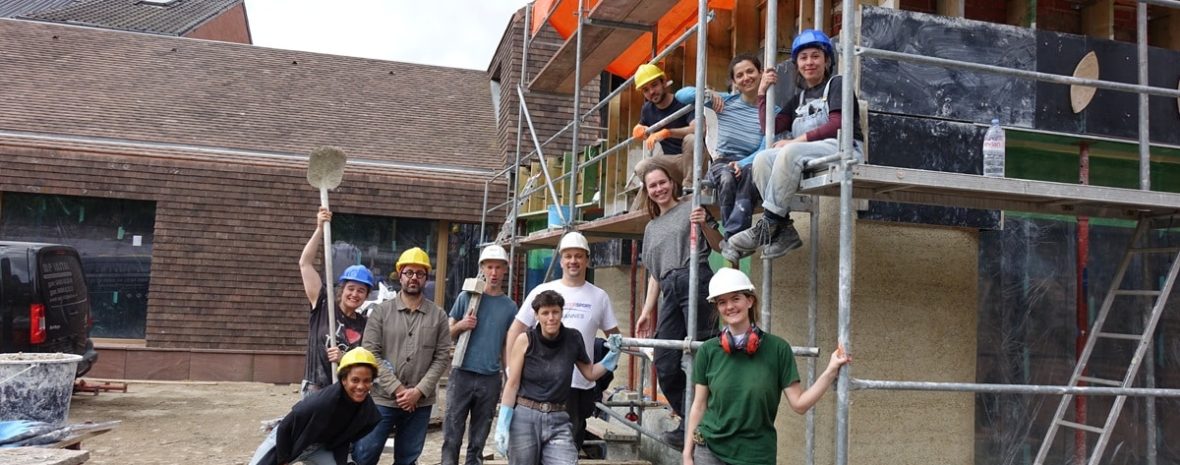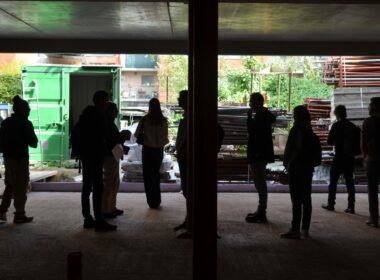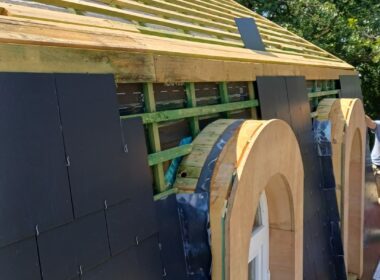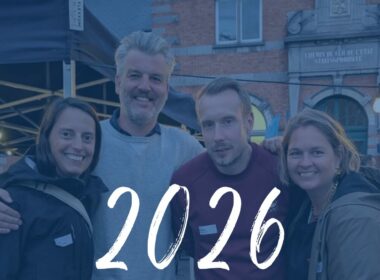Today’s construction sector is at a crossroads. The sustainable transition that is essential to reduce the sector’s environmental footprint involves moving from a linear economic approach to a circular one. While this profound transformation is a source of challenges and obstacles of all kinds, it also creates opportunities for entrepreneurs eager to make their contribution. In Brussels, the number of sustainable construction initiatives, projects and start-ups is increasing and they’re seeking to become part of an ambitious construction landscape, but sometimes still have to contend with many of the industry’s players’ fear of change.
Ecobuild spoke to the heads of two start-ups active in the Brussels sustainable construction landscape, who revealed how they developed their business plans, the pitfalls to be avoided, and the progress that still needs to be made in order to make the sector’s sustainable transition a success.
Committing to a meaningful approach: the example of Degré 47
In March 2020, Laurane Coornaert launched her own company to support sustainable self-build or self-renovation projects, christened Degré 47, winning a Vocatio grant in the process to help her get the adventure off the ground. An architect by training, for Laurane the project is like killing two birds with one stone: “I’d been thinking for a while about working for myself and developing my own project, which was more in line with my values and beliefs, particularly in terms of sustainability and a holistic vision of construction.” In practical terms, she offers advice and support to private individuals who are undertaking a self-construction project and are looking for help with their sustainable construction or renovation, both in the design phase and on the building site itself.
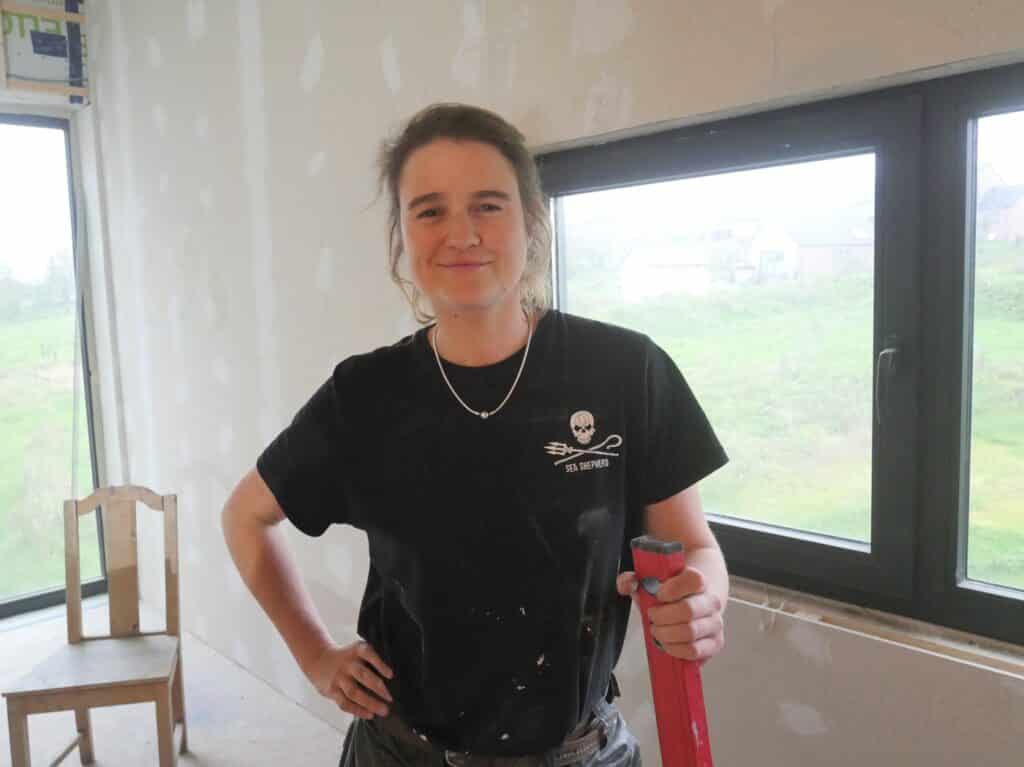
Unlike many companies that suffered during the COVID-19 health crisis, this was an opportune period for Laurane Coornaert’s start-up: “The pandemic and the ensuing lockdown meant the DIY movement was booming, whether in construction or other activities. The number of self-builders has also grown rapidly, attracted by the idea of building things with their own hands, as well as by the financial side of things. This combination of factors meant my start-up’s services were perfectly aligned with the growing demand.”
| Degré 47 can pride itself on its involvement in several prestigious projects, including the Decoster project in Forest, which Laurane Coornaert recalls particularly well. This RENOLAB.B award-winning project involved transforming and re-purposing an inner block housing a courtyard and garages to accommodate a new multi-purpose room and a themed urban vegetable garden. “For this project, I was contacted by ICI Architects, the architectural firm in charge of the project, to put together a two-week participatory worksite focused on the use of hemp lime for the insulation of exterior walls. I supported 12 participants in the project and we achieved really high-quality results.” Participants included recent graduates and architecture students, people looking to retrain in sustainable construction, and self-builders who wanted to master the technique for their personal projects. “This project is evidence of the interest in techniques based on bio-sourced materials such as hemp lime, which have a role to play in the sustainable transition of the construction sector. One of the project’s unique characteristics was the need to apply insulation along the rounded window frames, and to leave the insulation exposed, i.e. not to cover it with plaster. This called for insulation that was as dense as possible, but the pre-mixed hemp lime supplied by EXIE was perfectly suited to the task.” |
Exploring synergies and making space: Coliseum
In 2023, Barthélémy de Callatay and his cousin Marc-Antoine founded Coliseum, a start-up selling circular (i.e. reused or surplus) building materials. The company was born out of a simple observation:
“At the time, I was working for a restaurant chain where sustainability was a core value. As the head of restaurant design, I wanted to take a more sustainable approach to our construction, so I was actively looking for reusable materials. At the time, Marc-Antoine was working for a major marine engineering company, and was regularly confronted with the problem of surplus materials at the end of construction projects, and it was always difficult to find ways to recycle them. We quickly realised that we could each solve the other’s problem, and that there was a real need for synergy in this aspect of construction in Brussels. This is how Coliseum was born, a project that’s positioned as a supplier of circular materials to construction professionals.”
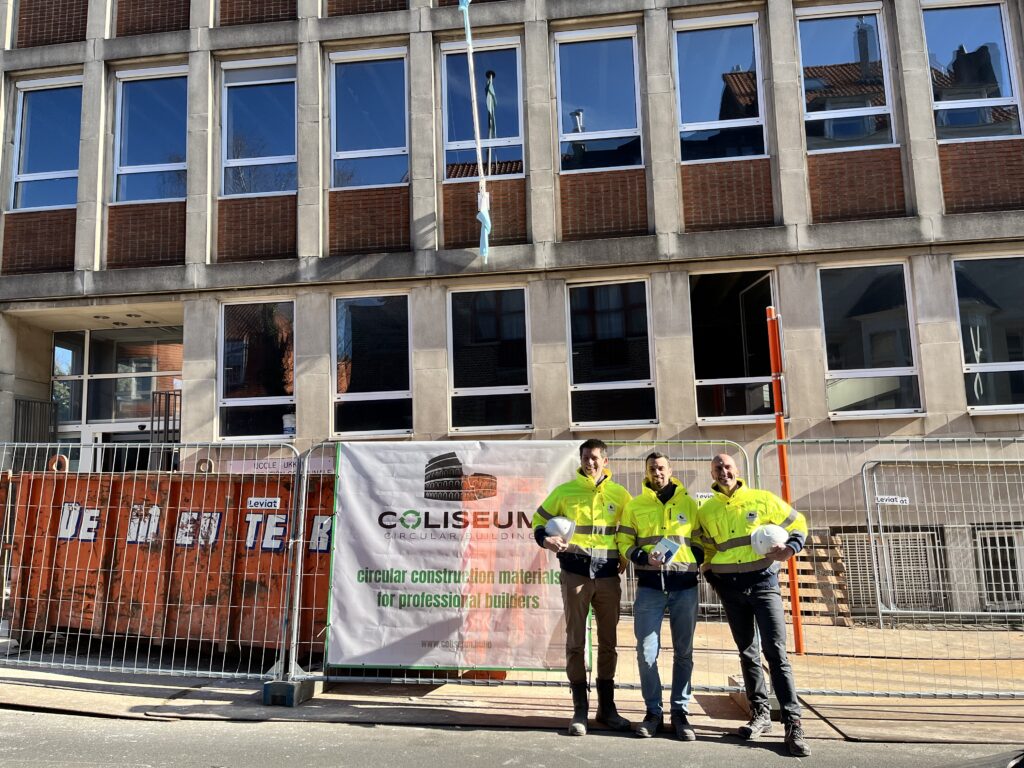
Coliseum takes care of the just-in-place, just-in-time delivery of circular materials, i.e. materials that have already been used and then recovered through reuse channels, and new materials that can no longer be sold through conventional channels (surplus, order errors, slight defects, etc.), which are all combined in the start-up’s catalogues.
Working with Julien Willem, an engineer by training and a specialist in reuse, Coliseum has quickly become a key player in Brussels’ construction sector: “Since our launch, we’ve already been involved in over 100 projects at various levels, which shows that the sector is in need of services like ours, making circularity more accessible. Also, we’ve already established partnerships with a number of well-known groups and companies, including Louis De Waele, Eiffage, CIT Blaton, CFE and Democo, to name a few“. Coliseum operates as a small team by choice. As a circularity coordinator, the company is aiming to become the first port of call for construction companies looking for a specific material: “We want to get to know all the players involved so we can respond as quickly as possible to our customers’ needs, by subcontracting the necessary dismantling and logistics tasks” adds Barthélémy de Callatay.
Brussels, a land of sustainable entrepreneurship?
In recent years, Brussels has seen an increase in the number of sustainable construction companies operating in various market segments. There are several factors behind this rapid evolution, which have all created a favourable atmosphere for entrepreneurs with a strong sustainable vision.
Firstly, the presence of proactive and effective support institutions, embodied by hub.brussels, the Brussels agency for entrepreneurship, and more specifically by Greenlab, its acceleration programme for sustainable start-ups. The decision by the Brussels public authorities to provide financial and strategic support for entrepreneurs has breathed new life into a number of sectors, including sustainable construction: those wishing to launch their own project know that they are not only supported, but also integrated into business networks. Barthélémy de Callatay and Coliseum were able to take advantage of this: “We felt real support from the public authorities, and we were awarded subsidies via the be.circular call for projects. Both of these factors helped us massively in launching our start-up, and we’re very grateful.”
Bringing together different players, often with converging interests, means synergies can be created and ethical practices can be shared between these players who are all committed to supporting the sustainable transition. Laurane Coornaert also stresses how important it is to have pioneering companies in these circular approaches: “Rotor, BatiTerre, Natura Mater and BC Materials, to name just a few, have really supported the development of the circular economy in construction. They’ve paved the way for many other companies, demonstrating economic viability as well as highlighting the need for new sustainable alternatives in the construction sector, which is often still too resistant to change.”
Following in the footsteps of these pioneering players, the decision by the Brussels public authorities to promote sustainable designs for large-scale public contracts has led to a proliferation of exemplary projects in terms of sustainability, inspiring increasing numbers of players to commit to a sustainable and/or circular approach.
More obstacles to overcome
More obstacles to overcome
While Brussels is emerging as a catalyst for the sustainable transition of the construction sector, start-ups are still facing a number of challenges that hamper sustainable and/or circular development.
In particular, Laurane Coornaert points out the lack of information, and even misinformation and prejudice, surrounding sustainable or bio-sourced materials: “There’s still a huge amount of information and education work to be done, to convince not only the general public, but also all the players in the sector, of the benefits and advantages of organic materials and circular practices.” Another negative consequence of this situation is the lack of professionals capable of working on sustainable construction projects, because they have not been trained in the techniques: “Unfortunately, I still meet too many customers who have difficulty finding companies willing to use organic materials, and who have the skills to do so. However, momentum is building; I’ve already had the opportunity to organise training days for contractors on materials such as lime plaster and hemp lime insulation. These initiatives can be used as leverage to pass on expertise and accelerate the transition to more sustainable construction,” she explains.
Barthélémy de Callatay makes a similar observation, and is disappointed in the construction sector’s immobility and resistance to change. He does, however, make an important distinction: “It’s true that it’s still difficult for many players to envisage a way of working other than the one they’ve always known. On the other hand, there is a change in mentality emerging, and every major construction company now has professionals in their ranks who are convinced of the need to implement circular and sustainable practices. And these people are gradually managing to spread their vision to other members of the company, and that’s something to be welcomed.”
Greater visibility, and fast
Similarly, the founder of Degré 47 is disappointed in the lack of visibility for sustainable construction companies, sometimes still overshadowed by companies pursuing more traditional methods: “The support of public authorities and major private groups is essential to boost the momentum we’re currently experiencing. By putting their trust in companies committed to the circular economy and bio-sourced materials, they can become catalysts for change, inspiring other players to get involved and increase the number of exemplary projects,” she adds.
Finally, the question of logistics remains problematic for the roll-out of circularity on a larger scale. Dismantling, storing and transporting recovered materials requires far more logistical effort than a linear consumption pattern. However, logistics is one aspect that companies are focusing on, and for which many new innovative solutions are emerging, such as the BCCC (Brussels Construction Consolidation Centre). This platform, located in the port of Brussels, acts as a logistics hub for reused building materials, which pass through it before being transported to a new construction site.
A standard framework in need of an update
Despite positive initiatives led by the public authorities in Brussels, Laurane Coornaert and Barthélémy de Callatay are also finding themselves bogged down by a standard framework that is evolving, but does not yet take sufficient account of bio-sourced or circular materials, making it more complex to implement them in projects. Barthélémy also calls for new economic incentives for the use of circular materials: “Reuse requires a lot of labour, which is why it sometimes costs too much when compared with new materials. And by supporting reuse even more, whether financially or through changes in legislation, public authorities would kill two birds with one stone: they’d encourage job creation, and speed up the sustainable transition of the construction sector.”
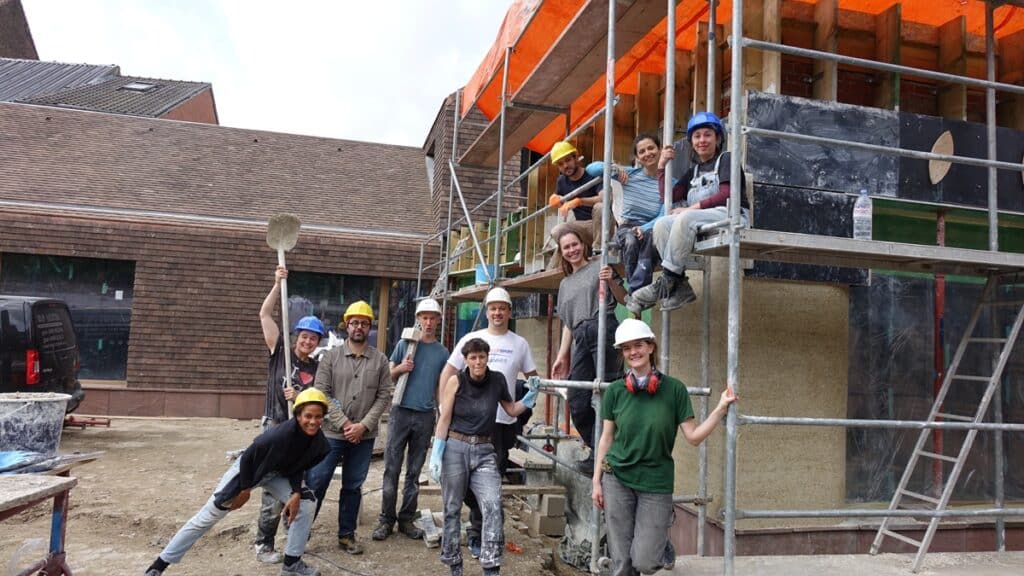
A sustainable Brussels isn’t built in a day
The sustainable transition of the construction sector is more an evolutionary process than a revolution. In this respect, the two entrepreneurs we interviewed both stress the importance of perseverance, actively educating all the different players in the sector, as well as the general public, and establishing synergies between companies operating in Brussels’ construction sector. “There are a huge number of entrepreneurs, start-ups and public players working to bring about lasting change in the Brussels construction landscape, and by working together and sharing, we can speed up the process,” Laurane Coornaert insists.
Today, the situation in Brussels really favours the development of sustainable initiatives that bring real added value to society. The capital is emerging as an ideal playground for entrepreneurs committed to a sustainable and resilient future: “Sustainable entrepreneurship is an extraordinary and rewarding human adventure. And it’s accessible to everyone,” Barthélémy de Callatay concludes.
